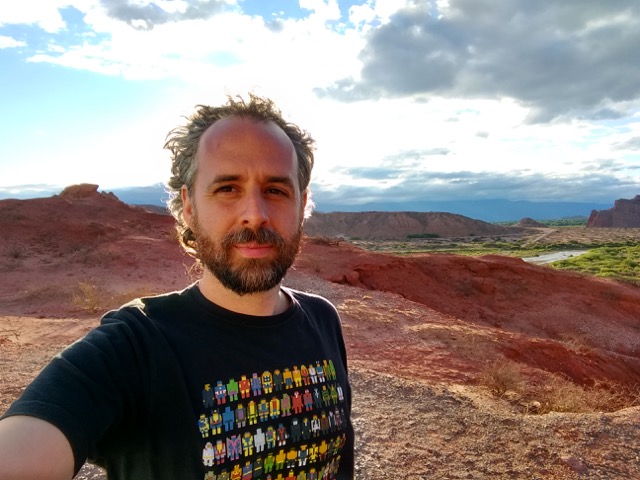What would you do if you found yourself in one of the deadliest conflict zones in the world? What if the basic fate of where you were born placed you and your loved ones in a place where crime was deadly on a daily basis and the disappearance of people became commonplace? Now add to the equation the fact that the place you sought for refuge had essentially labeled you unwelcome. The Guardian of Memory is Marcela Arteaga’s documentary film about the Mexican people who find themselves caught between drug cartels and governments on both sides of the Unites States/Mexican border. Rodrigo Merolla is the sound mixer for this production. His role often placed him and his colleagues in dangerous scenarios, required them to capture the sights and sounds of the people interviewed in this film; people who were injured, frightened, and often at edge of breaking down in tears due to the devastation they had experienced. As with his fellow collaborators on The Guardian of Memory, Rodrigo’s work demanded capturing the emotion of the moment as it occurred in real time and was reliant on ingenuity and experience. As heart-wrenching as it is to experience these moments when watching this film, the stories of these people and the efforts of the filmmakers to illuminate their side of this story has focused more attention on this part of the world.

While politicians on both sides of the border espouse reasons for their policies, the people of this area have borne the brunt of the violence. The Guardian of Memory was shot in Ciudad Juárez and several towns in the state of Chihuahua, in the Juarez valley, such as Guadalupe, Ascensión, or San Isidro. This film allows the people there to tell their own stories; stories with a deluge of sorrow, fear, and pain. These are people with nowhere to turn for help. Marcela Arteaga understood that the only way to properly convey the plight of these people was through their own voices. Rodrigo Merolla recorded sound for these interviews which were impromptu and often captured on the move. He relates, “For example, when we were walking through a cotton plantation with one victim, she suddenly began to tell us tragic details of her husband’s kidnapping. We looked at each other with the photographer and without saying a word, we both began to shoot because we knew it was not going to be repeated with the same feeling. In fact, that particular audio is in the film, accompanied by other images, because the visual commitment is poetic. There were other moments when we would be filming for hours while a victim gave their testimony and we’d have to silently communicate and anticipate when the best time would be to change a battery or memory card, avoiding an intrusion into the emotion that was being communicated.”

The stories of these people, along with the determination of Texas based immigration lawyer Carlos Spector who fights a tone-deaf system in the hopes of aiding them, has found a powerful voice in The Guardian of Memory. This documentary is a piercing instrument of truth against all who might proclaim ignorance of the circumstances which have befallen the people of this region. Accolades including a nomination for the Prince of Prestige Academy Award and a win for the Best Feature Length Documentary at the Ariel Awards Mexico confirms that the elite of each country’s film community recognize the importance of The Guardian of Memory. To witness the film and remain unmoved by it is unthinkable. Rodrigo Merolla states, “Being part of this film affected me personally. It is one of the things that I like about my work, especially in documentaries; you became part of the stories that are revealed and get to know people and situations in a very special way that you would never have come to otherwise. I reevaluate how lucky I am in my own life when I approach stories like those of ‘El guardian’ [The Guardian of Memory]. The recognition of the film also make me happy, because the more the documentary is seen, the more it serves the victims in their claim for justice.”

Thomas Jackson is a dynamic and talented content writer at WonderWorldSpace.com, renowned for his engaging and informative articles. Beyond his professional pursuits in writing, Jack is also known for his deep passion for fitness, which not only shapes his lifestyle but also influences his work.


